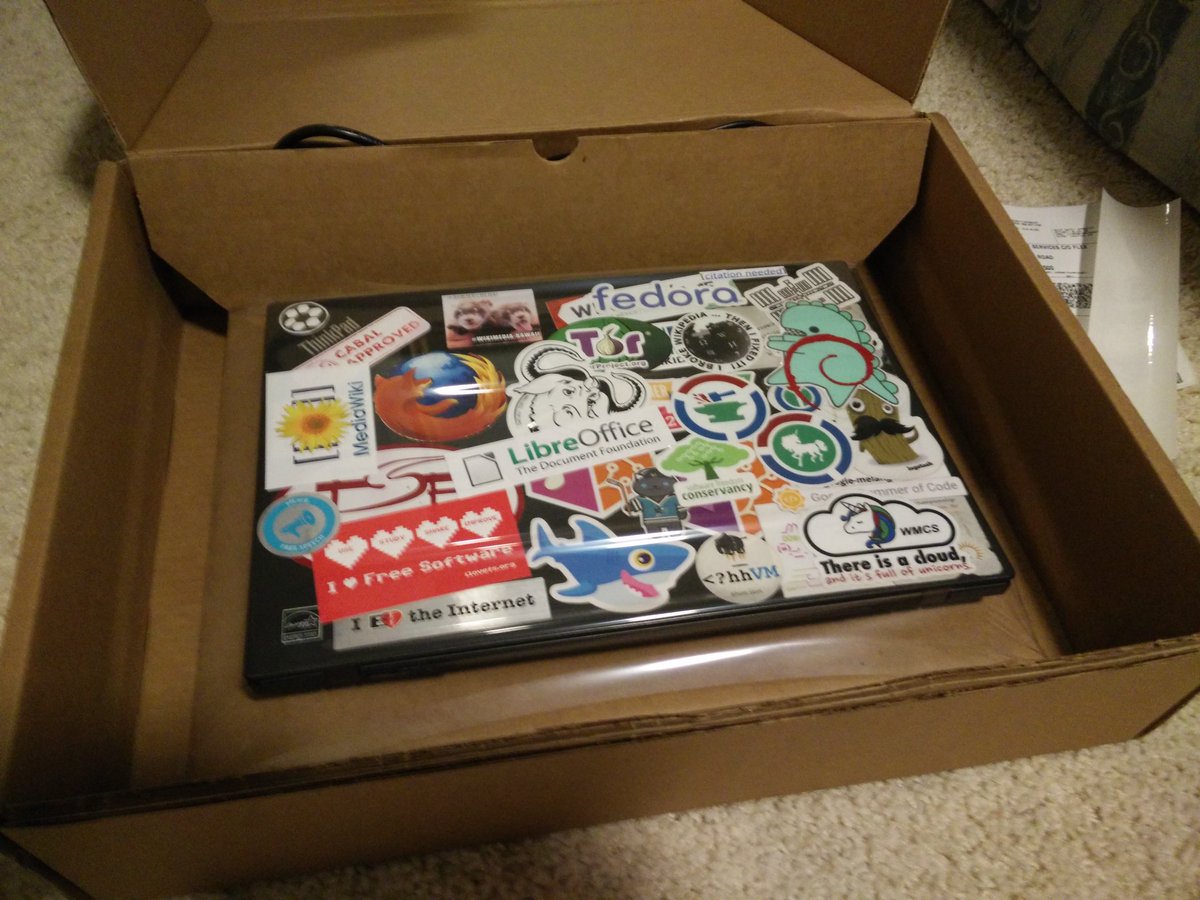Originally posted on Twitter.
Saying that the install process is intentionally bad so you don't get poorly written bug reports from non-technical users is a terrible excuse. Free software needs to be accessible and usable by all.
The following is the position paper I submitted for the 2018 Wikimedia Developer Summit.
We have well established that volunteers are the lifeblood of the Wikimedia movement. We prioritize their contributions and work to ensure they are given the tools they need to succeed. But in the Wikimedia development community, we’ve neglected volunteers instead of nurturing them – and this is a serious problem that we need to rectify. There are a lot of areas where we can improve, but I’m going to focus on just one: improving the volunteer developer’s code review experience.
While Wikimedia Foundation product teams are building new things, it’s usually the volunteers who are keeping critical tools that the community depends upon alive (AbuseFilter, CheckUser, etc.). The MediaWiki codebase has gotten so massive that it’s not practical to try and have the Wikimedia Foundation attempt to maintain all of it. It would not be a good use of movement funds either. Instead, I’m proposing that we utilize our volunteer base and ensure they are the valued and respected members of the Wikimedia development community. I think we can do it in three steps: first, set reasonable standards for code and the review process, second, prioritize code review of patches coming from volunteers, and finally empower volunteers to be maintainers and owners of code and create a sustainable community.
1. Set Reasonable Standards for Code and the Review Process
The status quo is that depending on who reviews your code, you will have a wildly different experience. Some will mandate that principles like dependency injection are followed or others will require 100% test coverage. And others might not care for any of that and just ensure the code does what it is supposed to before merging. But the people who face the worst of it are volunteers – WMF staff will have consistent reviewers through teammates who already communicated standards for merging code.
So we need reasonable standards for code we accept, and use those throughout the review process. As an example of “reasonable”, if someone is trying to fix a bug in legacy code that is difficult to test, it would be unreasonable to mandate a test case before merging the fix.
2. Prioritize code review of patches coming from volunteers
Our current process of reviewing volunteers’ patches after finishing code review for teammates isn’t working – we have a giant pile of unreviewed patches. When you start your day and look through your list of reviews, pick one or two patches from a volunteer and review them first. Most likely it’ll take minimal time, but for previously-neglected volunteers, it will make a big difference.
3. Empower volunteers to be maintainers and owners of code
Some of our volunteers have been around for quite a while and are well trusted. Let’s give them +2 rights! There’s nothing that makes you feel better than getting an email from someone telling you that your contributions are valued and they’d like to nominate you for +2 access (exactly how I got hooked). And quite a few years I’m still around, so it must have worked.
Originally posted on Twitter.
Today's announcement by the Boy Scouts of America is fantastic. I can't wait for more details. "In Major Shift, Boy Scouts Says It Will Begin Allowing Girls To Join"
Originally posted on Twitter.
After nearly three years of adventures, my laptop is heading back to Lenovo for some repairs. Come back in one piece please!

The MassMessage MediaWiki extension hit 1,000 commits today, following an update of the localization messages for the Russian language. MassMessage replaced a Toolserver bot that allowed sending a message to all Wikimedia wikis, by integrating it into MediaWiki and using the job queue. We also added some nice features like input validation and previewing. Through it, I became familiar with different internals of MediaWiki, including submitting a few core patches.
I made my first commit on July 20, 2013. It would get a full rollout to all Wikimedia wikis on November 19, 2013, after a lot of help from MZMcBride, Reedy, Siebrand, Ori, and other MediaWiki developers.
I also mentored User:wctaiwan, who worked on a Google Summer of Code project that added a ContentHandler backend to the extension, to make it easier for people to create and maintain page lists. You can see it used by The Wikipedia Signpost's subscription list.
It's still a bit crazy to think that I've been hacking on MediaWiki for over four years now, and how much it has changed my life in that much time. So here's to the next four years and next 1,000 commits to MassMessage!
My Toolforge (formerly "Tool Labs") tools will now start requiring HTTPS, and redirecting any HTTP traffic. It's a little bit of common code for each tool, so I put it in a shared "toolforge" library.
from flask import Flask
import toolforge
app = Flask(__name__)
app.before_request(toolforge.redirect_to_https)
And that's it! Your tool will automatically be HTTPS-only now.
$ curl -I "http://tools.wmflabs.org/mwpackages/"
HTTP/1.1 302 FOUND
Server: nginx/1.11.13
Date: Sat, 26 Aug 2017 07:58:39 GMT
Content-Type: text/html; charset=utf-8
Content-Length: 281
Connection: keep-alive
Location: https://tools.wmflabs.org/mwpackages/
X-Clacks-Overhead: GNU Terry Pratchett
